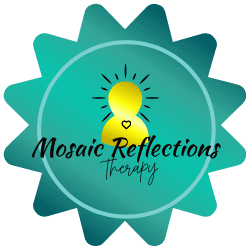Mom Syndrome: Breaking Free from Burnout, Overwhelm, and Numbness
You know her. Maybe you are her. The mom who has everything—a family, a house, a job, stability—but still feels completely drained. The mom who wakes up every morning already exhausted, mentally scanning the never-ending to-do list while pouring coffee she doesn’t even get to drink hot.
She loves her family, but she resents them too. She tells herself she should be grateful for all she has, but she just feels…nothing. Or worse, she feels like she’s one bad day away from losing it entirely. Here it is… The Classic Mom Syndrome—a perfect tornado of burnout, emotional numbness, and self-neglect.

Mom Syndrome: How Did You Get Here?
It starts small. You give up little things—skipping the gym because your kid needs to be at soccer practice, canceling plans with friends because your husband has a late meeting, pushing through exhaustion because there are lunches to pack, laundry to fold, and permission slips to sign. Over the years, the little sacrifices pile up until one day, you realize that there’s nothing left for you.
And yet, you’re supposed to be grateful. You have everything you ever wanted, right? A family, a home, a steady income. But instead of feeling fulfilled, you feel trapped. Your only emotions seem to be irritation and exhaustion. Happiness? Can’t find it. Joy? Barely remember what that feels like. Contentment? Only when everyone else is finally asleep and you get a quiet moment—except then, you’re too tired to enjoy it.
So what happens? You explode. Maybe it’s over something small, like your kid spilling juice or your husband forgetting to take out the trash. But the rage comes out of nowhere, and you don’t even recognize yourself. Or maybe you withdraw completely, numbing out on Netflix and scrolling social media, feeling too detached to care about anything. Either way, it’s not sustainable. And deep down, you know that.

What is Mom Syndrome?
“Mom Syndrome” isn’t a formal medical diagnosis, but it’s often used to describe the physical, mental, and emotional exhaustion many moms experience from constantly prioritizing their family’s needs over their own. It can look like:
- Chronic fatigue – Feeling drained all the time, even after rest
- Overwhelm & burnout – Struggling to keep up with endless responsibilities
- Guilt – Feeling bad for taking time for yourself or saying no
- Losing identity – Not recognizing yourself beyond “mom”
- Mental load overload – Keeping track of everyone’s schedules, meals, emotions, etc.
- Resentment – Toward your partner, kids, or the constant demands of motherhood
- Anxiety & depression – Worrying about everything or feeling emotionally numb
This often happens because moms feel pressure to be everything for everyone, leaving no room for self-care. It’s especially tough for moms with ADHD, anxiety, depression, or past trauma since they’re already managing extra mental and emotional burdens.

The Toll of Putting Everyone Else First
Midlife mom burnout isn’t just an emotional struggle—it’s a physical one, too. Chronic stress leads to:
- Exhaustion and fatigue (no amount of caffeine fixes this kind of tired)
- Frequent headaches, muscle tension, or digestive issues
- Sleep disturbances (you either can’t sleep or can’t get enough)
- Brain fog and forgetfulness
- Increased anxiety or depressive symptoms
- Resentment toward loved ones leads to guilt and more burnout
And yet, asking for help feels selfish. Saying no feels impossible. Slowing down feels like failure. But what if this isn’t how it has to be? What if there’s a way to reclaim yourself without abandoning the people you love?
Rewriting the Script: Self-Care, Boundaries, and Emotional Healing
1. Permission to Matter
First and foremost, you need to believe that you matter too. Your needs, your emotions, your well-being—it’s all just as important as everyone else’s. If that idea feels foreign to you, start small. Instead of thinking, I don’t have time for self-care, try, Taking care of myself makes me a better mom, wife, and human.
2. Setting Boundaries Without Guilt
No, you don’t have to sign up for every PTA committee. No, you don’t have to answer work emails at 9 PM. And no, you don’t have to be the sole emotional and logistical backbone of your household.
Start practicing:
- Saying no without apologizing (try: “I can’t commit to that right now, but thanks for thinking of me.”)
- Delegating tasks (let your family step up!)
- Carving out time for yourself without guilt (because you deserve it, period.)

3. Therapeutic Modalities That Heal Mom Syndrome: Brainspotting and Internal Family Systems (IFS)
When burnout is deep-rooted, sometimes traditional self-care isn’t enough. That’s where therapy can make a massive difference. Two highly effective approaches for moms dealing with overwhelm, emotional numbness, and past traumas are Brainspotting (BSP) and Internal Family Systems (IFS).
Brainspotting: Releasing Stored Trauma
Brainspotting works by accessing parts of the brain where emotional pain and trauma are stored. It helps identify the subconscious “stuck” places that keep you feeling exhausted, angry, or numb. For moms who’ve spent years pushing their own needs aside, Brainspotting allows those repressed emotions to surface and process without being overwhelming. It’s especially helpful for releasing guilt, resentment, and feelings of inadequacy.
Internal Family Systems (IFS): Understanding Your Inner Struggle
IFS therapy helps you recognize and work with the different “parts” of yourself—like the overachiever who feels like she has to do it all, the angry part that lashes out when overwhelmed, or the numb part that shuts down when things feel too hard.
Instead of feeling like a ticking time bomb, IFS helps you understand and work with these parts, bringing self-compassion and balance back into your life. It helps you recognize that all these parts exist to protect you—but they don’t have to run the show.
Taking the First Step to Overcome Mom Syndrome
If you’ve read this far, you already know something needs to change. And that’s a good thing—it means you’re ready. Start small:
- Schedule 10 minutes a day for yourself (without guilt)
- Try saying “no” once this week and notice how it feels
- Reach out to a therapist trained in Brainspotting or IFS
You don’t have to overhaul your entire life overnight. But you do need to start choosing you—because no one else is going to do it for you.
And if you’re still waiting for permission? Consider it granted.
You deserve to feel alive again.


Eleena Hardzinski is a Licensed Marriage and Family Therapist and a Certified Brainspotting Therapist who practices online in North Carolina, South Carolina, and Wisconsin.
Eleena supports women struggling with anxiety, motherhood, parenting, relationships, past traumas, ADHD, and more. She helps overwhelmed moms find balance, overcome guilt, establish healthy boundaries, heal from past traumas, improve family communication, and regain confidence and joy in their lives.







